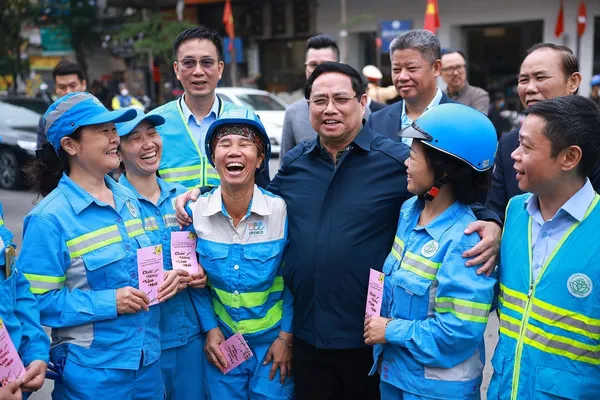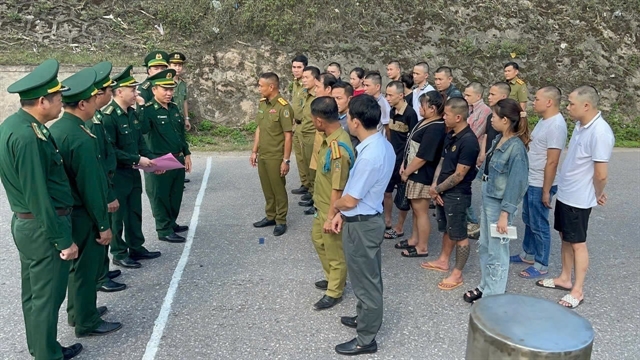 Politics & Law
Politics & Law


|
| Vietnamese authorities receive 16 citizens handed over by Lao police earlier this year. — VNA/VNS Photo |
HÀ NỘI — A draft law has proposed that the Ministry of Public Security take over the authority to apply the principle of reciprocity in extradition cases, shifting that responsibility from the Ministry of Foreign Affairs.
The change, outlined in the draft Law on Extradition presented to the National Assembly on Saturday, aims to streamline decision-making in cases where no extradition treaty exists between Việt Nam and a foreign country.
The draft law comprises four chapters and 45 articles, revising 19 provisions, adding 10 new ones, and removing one compared to the current Law on Mutual Legal Assistance.
Under the new framework, if Việt Nam requests an extradition, it will cover the costs incurred from the moment it receives the person. If Việt Nam is the receiving country, it will pay for expenses up to the handover, unless another arrangement is made.
The draft also clarifies procedures for emergency arrests. If a foreign country requests Việt Nam to detain a suspect urgently under an international treaty, the arrest must comply with Article 113 of Việt Nam’s Criminal Procedure Code, provided the request includes sufficient information and firm commitments from the requesting country.
A separate bill on the transfer of prisoners was also introduced. It names the Ministry of Public Security as the central authority for handling transfers involving Vietnamese or foreign nationals serving prison sentences.
Similar cost-sharing rules apply. Việt Nam will pay for prisoner transfer expenses up to the point of handover if it is the sending country, or from the time of receipt if it is the receiving country.
Individuals or organisations may voluntarily contribute to living, travel, or other related costs.
The draft removes earlier conditions requiring transferred prisoners to have last resided in Việt Nam or to have at least six months remaining on their sentence in certain cases. The government will be responsible for defining what qualifies as a 'special case' when less than a year of the sentence remains.
In another procedural change, the decision to approve or reject a prisoner transfer, previously made by a panel of three judges, would be made by a single judge under the proposed law. — VNS




